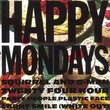| All Artists: Frederic Chopin, Nelson Freire Title: Chopin: Études, Op. 10; Barcarolle, Op. 60; Sonata No. 2 [Hybrid SACD] Members Wishing: 0 Total Copies: 0 Label: Decca Release Date: 7/12/2005 Album Type: Hybrid SACD - DSD Genre: Classical Styles: Chamber Music, Forms & Genres, Etudes, Sonatas, Historical Periods, Classical (c.1770-1830), Romantic (c.1820-1910) Number of Discs: 1 SwapaCD Credits: 1 UPCs: 028947566175, 028947566175 |
Search - Frederic Chopin, Nelson Freire :: Chopin: Études, Op. 10; Barcarolle, Op. 60; Sonata No. 2 [Hybrid SACD]
![Chopin: Études, Op. 10; Barcarolle, Op. 60; Sonata No. 2 [Hybrid SACD]](https://nationalbookswap.com/cd//l/11/7211/6127211.jpg) | Frederic Chopin, Nelson Freire Chopin: Études, Op. 10; Barcarolle, Op. 60; Sonata No. 2 [Hybrid SACD] Genre: Classical |
Larger Image |
CD DetailsSimilar CDs |
CD ReviewsFabulous Chopin playing... Hannibal | Los Angeles, CA USA | 08/11/2006 (5 out of 5 stars) "I think most lovers of the piano have long heard of the legendary Nelson Freire, but all too often it is in terms of his sensational technical virtuosity. Here on this disc however, he caresses as well as thunders and he beguiles the listener with his extraordinary touch to feel sublime moments often ignored by others. - Get this disc. You will be enchanted!" Very Loud and Very Fast Richard Steiger | Murray, KY USA | 01/10/2010 (2 out of 5 stars) "Now, very loud and very fast isn't entirely inappropriate for some of the music on this cd, and the etudes op 10/1, 4 and, especially, 12 are quite exciting. In fact, the etudes in general are quite reasonably done, though, like so many other pianists, Freire sounds a little clumsy in that notorious (and literal) finger-twister op 10/2, and the de-synchronization of hands in op 10/5 is way over the top. Still, I'd rate this version of the etudes in the middle of the pack. But then Freire loses it. The beautiful and subtle Barcarolle is, at 7:30, the fastest, most raucus performance of the work I've ever heard. If you're going to hop aboard this particular boat, I'd recommend you bring some Dramomine along. The Sonata is much the same, the loud passages very crude and the more lyrical pages (like the scherzo's trio) thrown away. And, horror of horrors, Freire chooses to begin the reprise of the Funeral March fortissimo (a la Rachmaninov in his "mad scientist" reading of the distant past). This is hard to understand because a few years ago Freire delivered a lovely disc of Schumann with a particularly sensitive and intimate account of Kinderszenen. Perhaps a key is his use (as stipulated in the booklet) of the Paderewski edition of the etudes and Barcarolle. Is Freire trying to duplicate the "Grand Manner" of the past? Well, I've never heard Cortot (or indeed Paderewski) playing this way. Chalky piano sound rounds out of the picture of a cd best avoided."
|



